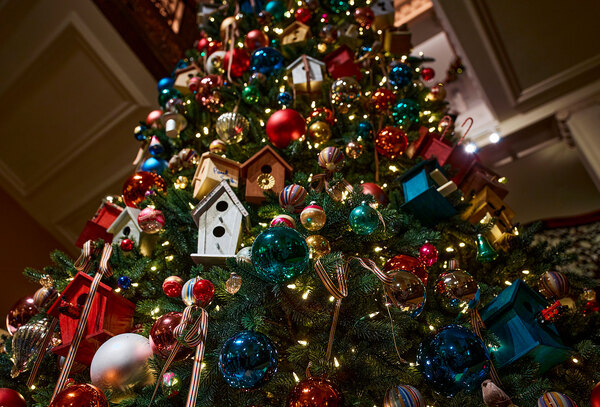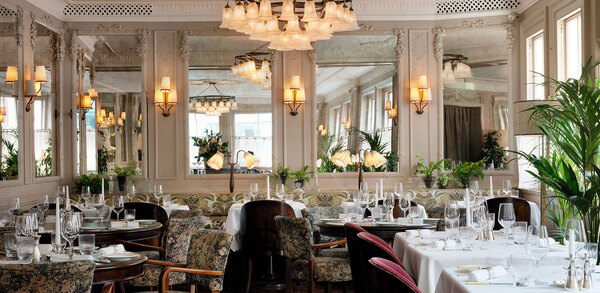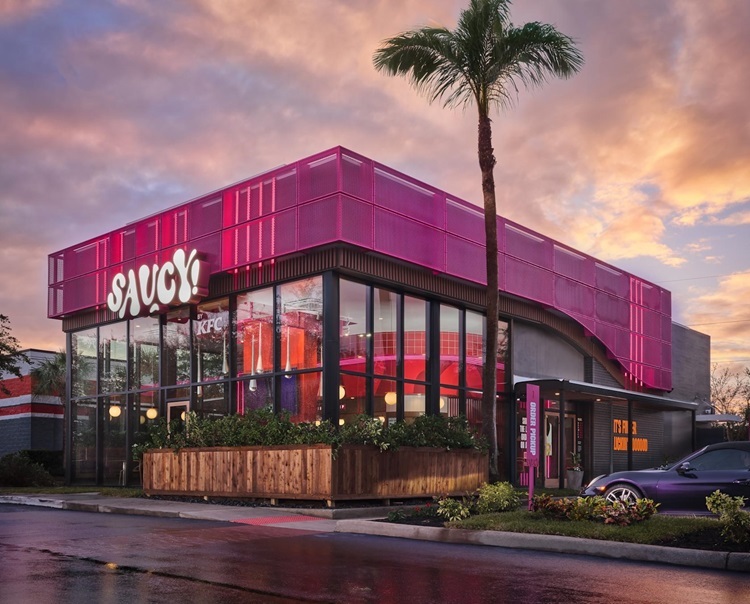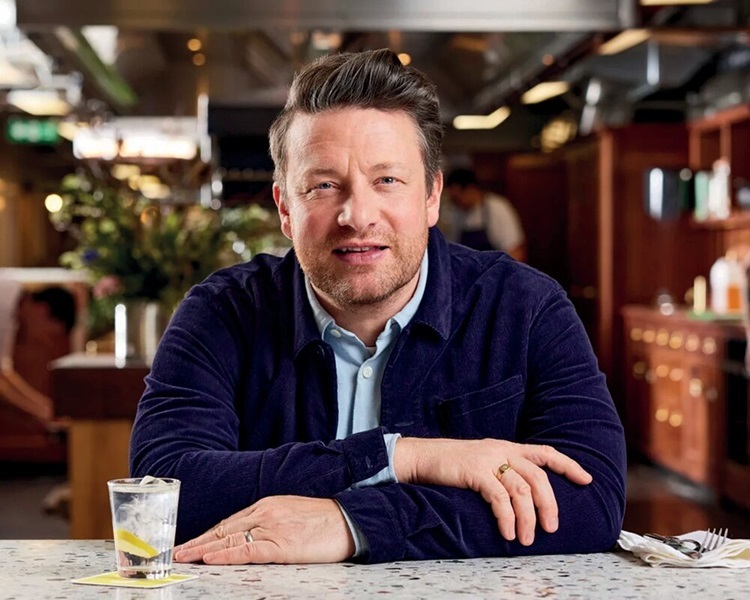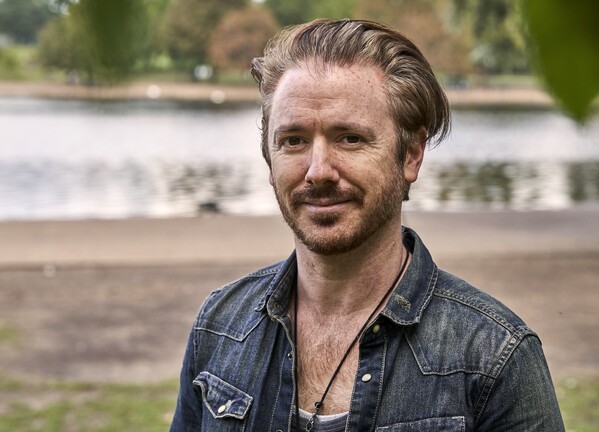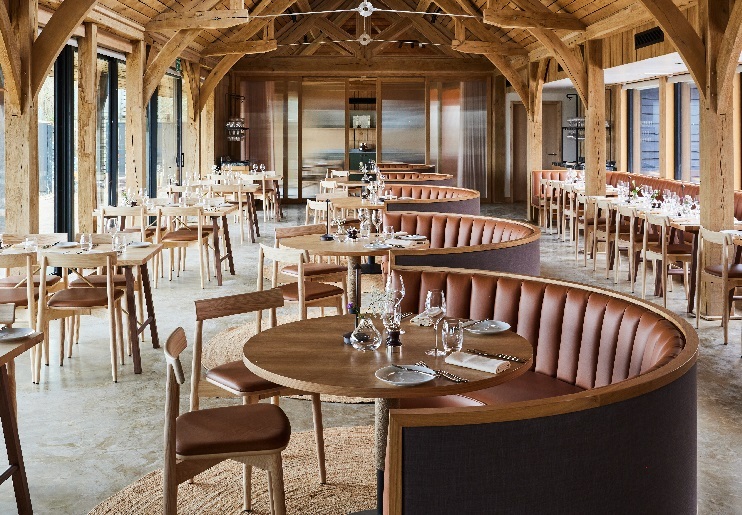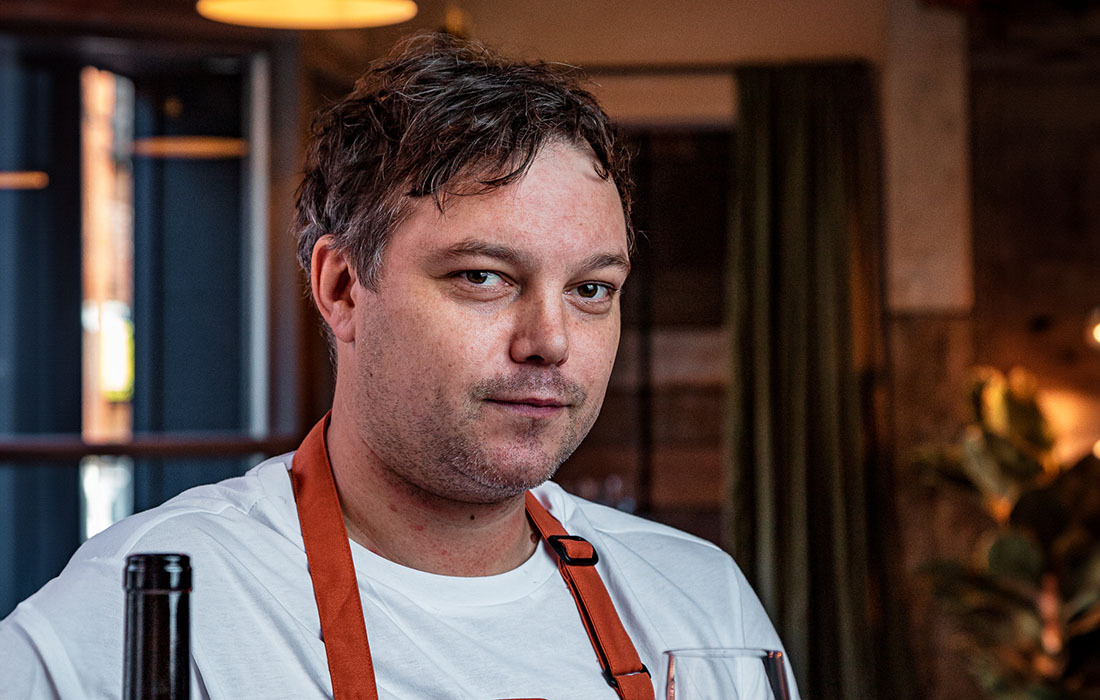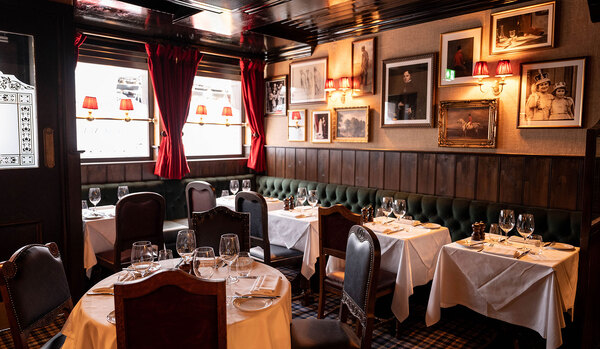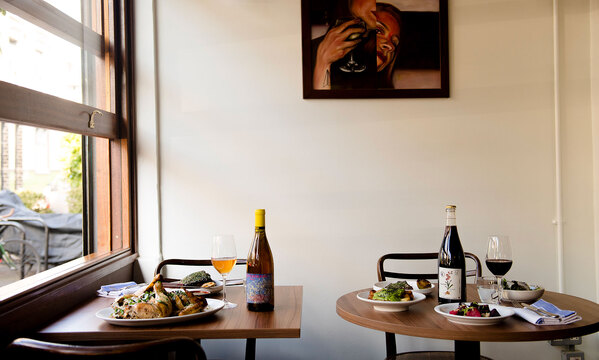Celebrity chefs – fame and misfortune
The celebrity chef phenomenon has spawned countless TV programmes, restaurant chains and the occasional David Beckham friendship but, says Richard Harden, the downturn is showing that media-friendliness is no barrier against business failure, and might even be making things worse
Has the Almighty got it in for celebrity chefs? If you look at the developments of the past few months, you might think so. Look at the closings: two Brasseries (Raymond) Blanc, Gordon Ramsay's Maze in Prague, four Antony Worrall Thompson restaurants, and two Novelli-branded pubs.
The background mood is ominous too. Ramsay empire accounts are showing financial difficulties, his Los Angeles and Paris properties have been sold, and Gordon himself has become a sort of punchbag for the red top papers; Paul Rankin nearly went bankrupt; Tom Aikens has admitted he feels like a "shit" for the way his creditors have been treated; Marco Pierre White's new show has bombed on US television; and Jamie Oliver has cancelled his plans for a Fifteen in Leeds.
This bad news seems all the more striking when you consider that the restaurant trade generally seems to be bearing up much better in the recession than might have been expected. Why are the celebrities having such a torrid time? Surely they should the the very last to suffer in the recession, not the first?
The advantage they have over your "ordinary" chef/restaurateur is both huge and obvious - establishments bearing the names of the Gordons, Jamies and Wozzas of the world continue to enjoy free marketing support that would cost, literally, millions if they had to pay for it.
At first sight, it is almost incomprehensible how signally the celebs are suffering, so we're going to have to dig a bit for an explanation. Perhaps this could be because restaurant chefs - traditionally back room boys - were never supposed to achieve celebrity status?
Until recently, none of the big box office post-war names of gastronomy - such as Robert Carrier, Fanny Cradock and Graham (Galloping Gourmet) Kerr - found fame through restaurant cooking.
As Alasdair Sutherland, former restaurateur and author of The Spaghetti Tree, a new London restaurant history, observes: "Successful restaurants of the 1960s and 1970s were largely led by front men, not chefs.
"At Mario & Franco's Terrazza - London's original trendy post-war restaurant - the head men were ex-waiters. And Peter Langan, of legendarily successful 1970s Mayfair brasserie fame, was certainly no cook."
THE ARRIVAL
It was not, in fact, until Marco Pierre White came along in the late 1980s that restaurant chefs really came into the public consciousness, and it took another decade for them to become a truly big deal.
In 1998 Jamie Oliver was sprung on an unsuspecting world as television's Naked Chef, and in the same year Gordon Ramsay got tongues wagging as the star of the documentary Boiling Point.
Given the longer-term history, some commentators see the celebrity chefs' difficulties as simply a sign of a return to normality. The obituaries of the era are already being written. Rachel Johnson recently commented in The Sunday Times: "In the 1950s the celebrities were film stars. In the 1960s, photographers and hairdressers. In the 1970s, rock stars. In the 1980s, fashion designers. And in the 1990s and the 2000s they were, weirdly, cooks."
One reason why some people are so keen to proclaim the end of the celebrity era may be the excessive hype. Can it really be true that some chefs are so super-gifted that they can almost magically spread their skills throughout a whole empire, with little or no personal involvement? They would have you think so, of course. Ramsay, for example, will not hesitate to tell you about his commitment to excellence, and how no-one complains if Giorgio himself didn't sew an Armani suit.
We don't need to speculate as to whether Ramsay can, in fact, project his magic across a whole empire. Our annual surveys confirm that many of the biggest names in the British restaurant world - including Gordon Ramsay, Michael Caines and Raymond Blanc - run restaurants that are among the best in the UK.
NO GUARANTEE OF QUALITY
The bad news for those same chefs, however, is that the surveys also suggesta notable lack of consistency in the quality of the other establishments associated with those names (and most of the other big names too).
The fact that some restaurants within celebrity groups get poor reports is particularly telling: it's not as if reporters have a blanket dislike of celebrities or their spin-off restaurants. But what the reports clearly suggest is that although a restaurant is part of a celebrity empire, it is no guarantee of quality.
Indeed, our researches have forced us to an odd, but we think interesting, conclusion: on average, the standards at UK restaurants associated with celebrity chefs tend to be lower than at similar restaurants that are not so branded. If that's right, the difficulties the celebrities are currently experiencing become much easier to explain.
Here's another paradox. The arrival of these great celebrity chefs, supposedly symbolising Britain's emergence from the culinary dark ages, has coincided with the all-but-extinction of the very highest quality haute cuisine in the UK (and in London in particular).
Who says so? Well, there is only one yardstick by which such cooking may be compared internationally, and that is three-Michelin-star status. By this measure London currently has just one top-rank restaurant, Gordon Ramsay.
OK, I can already hear the catcalls. But if there is any anti-Anglo sentiment chez Michelin, it must be a new thing. In the mid-1990s, London had the same number of three-star establishments as Paris - three. Now Paris has shot up to 10, and New York has four. Why has London gone so notably backwards during its celebrity chef era, when the competing cities have powered ahead?
Furthermore, since Tom Aikens, back in 2003, almost all the really ambitious openings in London, such as Hélène Darroze, Alain Ducasse and L'Ambassade de L'Ile, have been imports. It does begin to look as if our top-end cuisine is showing signs of the dreaded "Wimbledon effect", with the native competitors condemned to be something of a sideshow.
But enough of the bad news. There is another, positive side to the celebrity issue, and high-class chefs - even those who are not obviously celebrities themselves - seem to regard the celebrities as a Good Thing. The perceived pluses largely seem to boil down to what's nowadays called profile - either with the trade or with the public.
David Everitt-Mathias of Cheltenham's celebrated Champignon Sauvage, for example, stresses the consumer side, praising the celebs for "opening up" knowledge. Jamie Oliver, he says, "has encouraged mass-market consumers to be more discerning in their buying decisions", and Gordon Ramsay is praised - particularly with Boiling Point and The F-word - for "demystifying restaurant-going for the broader public".
A UNIQUE PERSPECTIVE
Marcus Wareing can bring a unique perspective to the celeb issue. Now a chef-patron, he formerly worked as part of Gordon Ramsay's empire, so he's seen life from both sides of the tracks. He still gives the celebrity chefs an unqualified thumbs-up. His main reason?
"They helped make cooking cool," he says, and broadened the range of potential recruits to the industry.
Sam Boshier from Bournmouth & Poole College agrees: "The main thing about the celebs is that our pupils see them as an inspiration."
Wareing has made it clear he personally doesn't wish to pursue the celebrity route, so it's perhaps all the more interesting that he volunteers, unprompted, that "it's only natural for chefs like Marco and Gordon to use cooking as a vehicle to move on to the greater things."
A STAGING POST?
Perhaps that's the key to the whole issue. Should cooking be regarded as just a ‘vehicle' - a staging post on the way to something better? For that is the impression the lives of Britain's leading celebrity chefs give.
What did Marco Pierre White do almost as soon as he had truly hit the heights? He handed in his Michelin stars, aged 40, and went on to run a generally lacklustre restaurant empire, parts of which have conspicuously withered and died, and to become a TV personality.
What did Gordon do once his empire expanded? Let's just say he is sometimes said to be considering a move to Hollywood.
In France they do things differently. There, you achieve greatness as a chef, then you achieve fame as a chef and then you carry on being a chef. Joël Robuchon - "chef of the century" according to Gault Millau - did not open his own restaurant until he was 36, and only received his third Michelin star when he was nearly 40 (at which age Marco was hanging up his toque). Nearly 25 years later, Robuchon is still opening restaurants of note.
At 52, Alain Ducasse is still going strong too, and still opening restaurants of high (if not invariable) quality across the world.
If cooking really can be considered as just a vehicle, it's not one those great Gallic chefs seem ready to discard. Are they going to achieve less in their lives because they still concentrate on being chefs? I'd suggest not. Perhaps, after all, there are some things we still can learn from the French.
Richard Harden co-edits Harden's restaurant guides with his brother, Peter
LANDMARKS IN CELEBRITY CHEFDOM
1996: Gary Rhodes appears on BBC TV show Shooting Stars, where presenters Vic Reeves and Bob Mortimer ask him "to represent fire through the medium of dance".
1998: Gordon Ramsay bans AA Gill and Joan Collins from Royal Hospital Road, a move that annoys the actress, but gains the chef significant column inches.
2000: Marco Pierre White's fianceé Lisa Butcher sells the couple's wedding coverage to Hello! for £20,000. Albert Roux is the best man.
2000: Jamie Oliver cooks for Tony Blair and Italian president Massimo D'Alema - the young Essex chef is no longer just TV fodder for young chaps and students.
2006: Gordon Ramsay caters for David Beckham's World Cup party. A subsequent friendship ensues, with Ramsay taking advice on anything from renewing marriage vows to media friendliness.
2009: Heston Blumenthal makes TV show Big Chef Takes on Little Chef about a failing motorway café chain - a combination that shows just how far celebrity chefs have come.
WHO OWNS WHAT
Tom Aikens: Tom Aikens, London; Tom's Kitchen, London (currently trading). Tom's Place, London (closed, not trading, sold or association discontinued).
Jean-Christophe Novelli: Dunham Novelli, Northampton (currently trading). Auberge du Lac, Brocket Hall, Hertfordshire; Maison Novelli, London; Novelli W8 and EC1, London; Les Saveurs, London; White Horse, Harpenden, Hertfordshire; French Horn, Steppingly, Bedfordshire; Novelli at the Cellars, Cape Town; Moulin de Jean, Normandy (closed, not trading, sold or association discontinued).
Jamie Oliver: Fifteen (London, Cornwall, Amsterdam and Melbourne); Jamie's Italian chain (currently trading).
Gordon Ramsay: Boxwood Café, London; Foxtrot Oscar, London; Gordon Ramsay, London; Gordon Ramsay at Claridges, London; Maze/Maze Grill, London; Murano, London; Plane Food, Heathrow airport; Three London gastropubs; Cielo, Boca Raton; Gordon Ramsay, Los Angeles; Gordon Ramsay/Maze, New York; Gordon Ramsay, Powerscourt, Ireland; Gordon Ramsay/Veranda Versailles; Verre, Dubai; Gordon Ramsay at Conrad, Tokyo; Maze, Cape Town (currently trading). Amaryllis, Glasgow; Angela Hartnett at the Connaught, London; Fleur, Maze, Prague; La Noisette, London; Pengelley's, London; Pétrus, London (closed, not trading, sold or association discontinued).
Marco Pierre White: Frankies Italian chain; Luciano, London; Marco, London; MPW Steakhouse, London; Yew Tree Inn, Highclere, Berkshire (currently trading). Café Royal, London; The Criterion, London; Drones, London; L'Escargot, London; Mirabelle, London; Oak Room Restaurant, London; Marco Pierre White, London; Sugar Reef, London; Titanic, London (closed, not trading, sold or association discontinued).
Antony Worrall Thompson: Windsor Grill, Windsor; Kew Grill, Richmond (currently trading). Ménage à Trois, London; Wiz, London; Woz, London; Metro, Jersey; Notting Grill, London; Barnes Grill, London; Lamb Inn, Henley; Greyhound Inn, Henley (closed, not trading, sold or association discontinued).


